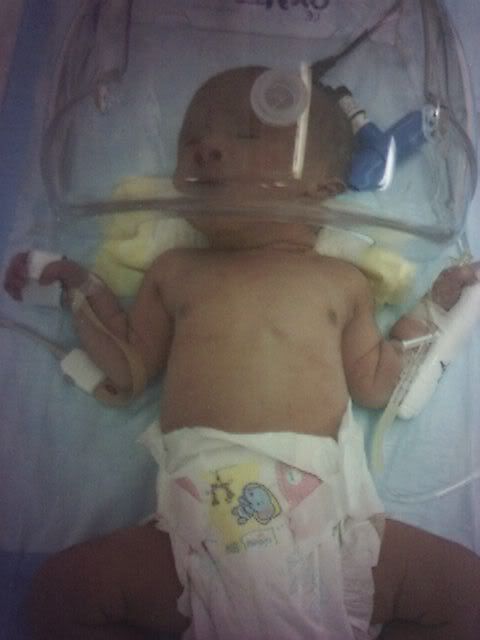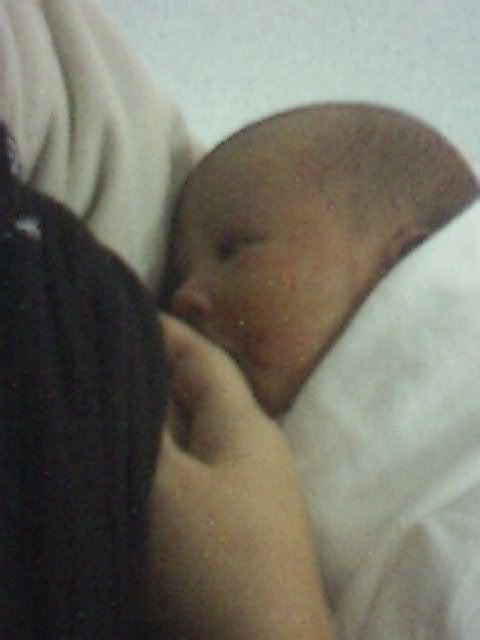 Anicius had to be in the ICU right after he was born.
Anicius had to be in the ICU right after he was born.
Mamafess breastfeeding no.six while he was in ICU.
The recent case of a poor mother from the Chinese countryside hired to breastfeed an affluent city-dweller’s baby has brought memories of the first time I breastfeed my eldest son seventeen years ago. My husband and I have read that breast milk was most suitable for a baby and as a mother, I was eager to give my son the best. Luckily, I was able to produce a lot of milk. By the third month, I have managed to freeze about twenty (9 oz) bottles to be kept for future use.
At that time, one of my friends had just adopted a child called Vincent. As he was allergic to soya and cow milk, he could only drink breast milk. There was an urgent called to ask for donation of breast milk and his father became the milkman of Singapore as he went all over Singapore collecting breast milk for his adopted son. We contributed as much as we could spare. I remembered that on his first birthday, his adopted parents invited all the mothers who have contributed to a big birthday party. If my memories served me well, over fifty mothers, regardless of race or religion, came forward to help baby Vincent. It was an unforgettable sight to see so many bottles of frozen breast milk. None of us were paid but the smile of Baby Vincent was priceless.
Now that professional wet nurses have appeared in many cities across China due to rising incomes and a demand for healthy milk, it has started a fierce debate over the ethics of the ancient art of wet nursing. Many object to the fact that some mothers are unwilling to nurse babies because they hope to maintain a slender figure. Of course there is the grey area when mothers are unable to nurse because they either do not have milk or suffer from infectious diseases. Although the wet nurses claimed that they are only providing an economic service and thus are justified to be paid, some worried that this would deprive the wet nurse own child from having the benefit of breast milk.
Is this a case of exploitation of the poor by the children of rich parents? How do we price a bottle of breast milk? What about the health of the wet nurse? How does one determine the quality of the breast milk? Is there a co-relationship between the nutrition in-take of the wet nurse and the quality and quantity of breast milk? Would some women be treated like cows whose sole existence are to produce breast milk for other children?
In Singapore, as more women become educated about the benefit of breast milk, they would be motivated to breastfeed their children. Would there come a day when a mother who could not or would not breastfeed take the easy road and pay for a wet nurse? How would CASE response to such a case? Would the AVA authority steps in and consider the wet nurse as part of primary production?
Just as we do not allow the sale of blood or organ, we should not allow the sale of breast milk for by doing so we would treat the body as a commodity. All donation of breast milk should consider as gift so as to preserve the dignity of the human spirit. If we do not make a firm stand against the sale of breast milk be it from a wet nurse or from a bottle, we would soon find it acceptable to trade in blood, organ, sperm and egg.